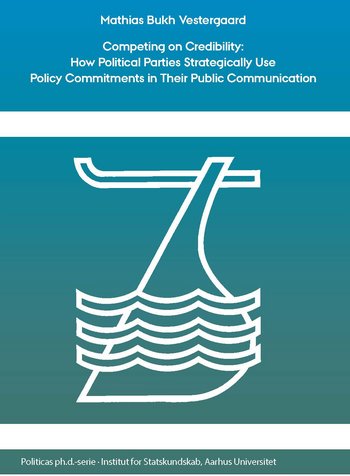Mathias Bukh Vestergaard

Competing on Credibility: How Political Parties Strategically Use Policy Commitments in Their Public Communication
Higher pay for nurses! New pension scheme for worn-out workers! Referendum on the EU membership! Political parties make hundreds of commitments before an election. When parties break these commitments, they are heavily criticized in the media, they get a negative reputation among voters, and ultimately, they lose votes at the next election. So, why do parties make all these commitments in the first place? This is the important research question of this dissertation. Throughout the book, I build the argument that parties make commitments to try to gain credibility among voters in the run-up to an election. This is highly needed when a party wants to differentiate itself from other parties that advocate the same political position, or when a party needs to gain the electorate’s trust after having changed its position or increased its emphasis on an issue. I test the validity of these theoretical propositions by identifying commitments in almost 100 election manifestoes written by American, British, and Danish political parties within the past three decades. After finding support for my expectations in the analyses, I conclude that commitments play a crucial role in modern-day politics, where parties increasingly compete on credibility. A major implication of this conclusion is that voters’ ability to hold parties accountable after an election largely stems from parties’ need for credibility during the election campaign. The dissertation will be of interest to anyone concerned with party competition, political communication, and the origins of future policies.
![]() Ophavsretten tilhører Politica. Materialet må ikke bruges eller distribueres i kommercielt øjemed.
Ophavsretten tilhører Politica. Materialet må ikke bruges eller distribueres i kommercielt øjemed.